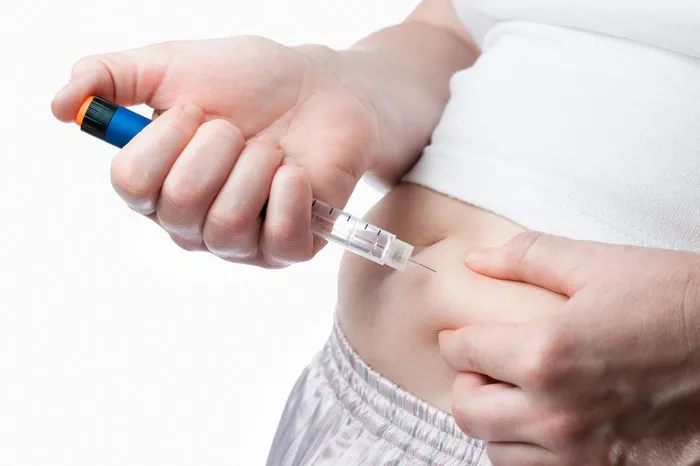Introduction
Beta blockers are a widely used class of medications for managing various cardiovascular conditions, such as hypertension, angina, heart failure, and arrhythmias. While these drugs are effective in controlling heart rate and reducing blood pressure, they come with a range of potential side effects. One particularly concerning and often underappreciated side effect is their propensity to cause hypoglycemia, especially in patients with diabetes. Hypoglycemia, or low blood sugar, is a serious condition that can lead to symptoms ranging from mild confusion to severe neurological impairment and even death if not promptly treated. Understanding why beta blockers cause hypoglycemia is crucial for optimizing patient care and minimizing risks associated with their use.
Mechanisms of Beta Blocker-Induced Hypoglycemia
Beta blockers cause hypoglycemia through several interrelated mechanisms. These mechanisms can be broadly categorized into their effects on insulin secretion, glucose production and utilization, and the counter-regulatory hormonal responses.
-
Inhibition of Glycogenolysis and Gluconeogenesis
One of the primary mechanisms by which beta blockers induce hypoglycemia is through the inhibition of glycogenolysis and gluconeogenesis in the liver. Glycogenolysis is the process of breaking down glycogen into glucose, and gluconeogenesis is the synthesis of glucose from non-carbohydrate sources. Both processes are crucial for maintaining blood glucose levels, especially during fasting or periods of increased energy expenditure.
Beta-1 adrenergic receptors play a significant role in stimulating glycogenolysis and gluconeogenesis. By blocking these receptors, beta blockers reduce the liver’s ability to release glucose into the bloodstream. This effect is particularly pronounced during conditions that typically stimulate adrenergic activity, such as stress or exercise, where endogenous catecholamines (like epinephrine) would normally increase glucose production to meet energy demands.
-
Inhibition of Lipolysis
Beta blockers also inhibit lipolysis, the breakdown of fats into free fatty acids and glycerol. Normally, beta-adrenergic stimulation promotes lipolysis, providing substrates for gluconeogenesis in the liver. By blocking beta receptors, these drugs reduce the availability of glycerol, which is a key gluconeogenic precursor. This further impairs the liver’s ability to generate glucose, contributing to the risk of hypoglycemia.
-
Enhanced Insulin Sensitivity
Some beta blockers, particularly non-selective ones, can enhance insulin sensitivity. While increased insulin sensitivity is generally beneficial for metabolic health, it can predispose individuals to hypoglycemia. In insulin-sensitive states, glucose uptake by peripheral tissues (especially muscle) is increased, which can lower blood glucose levels more rapidly and profoundly than in less insulin-sensitive conditions.
-
Blunted Sympathoadrenal Response
The body’s response to hypoglycemia involves the activation of the sympathoadrenal system, leading to the release of counter-regulatory hormones such as epinephrine and norepinephrine. These hormones stimulate glycogenolysis and gluconeogenesis while inhibiting insulin secretion, thus raising blood glucose levels. Beta blockers can blunt this sympathoadrenal response, making it harder for the body to counteract hypoglycemia. This blunting is particularly dangerous because it can mask the early adrenergic symptoms of hypoglycemia (such as tremor, palpitations, and anxiety), delaying recognition and treatment of low blood sugar levels.
-
Direct Effects on Pancreatic Beta Cells
Beta-adrenergic receptors are also present on pancreatic beta cells, where they influence insulin secretion. Beta blockers can inhibit the sympathetic nervous system’s modulation of insulin release, potentially leading to inappropriate insulin secretion relative to blood glucose levels. This effect can be particularly problematic in the context of other hypoglycemia-inducing factors.
Clinical Implications and Risk Factors
Understanding the clinical implications of beta blocker-induced hypoglycemia is essential for healthcare providers, especially those managing patients with diabetes or other metabolic disorders. Certain populations are at higher risk, and specific clinical scenarios can exacerbate the hypoglycemic effects of beta blockers.
-
Patients with Diabetes
Individuals with diabetes, particularly those on insulin or insulin secretagogues, are at a heightened risk of hypoglycemia when taking beta blockers. This risk is due to the combined effects of their antidiabetic medications, which lower blood glucose, and the additional glucose-lowering mechanisms induced by beta blockers. Close monitoring and adjustment of antidiabetic medication dosages may be necessary when starting or increasing the dose of a beta blocker.
-
Elderly Patients
Elderly patients are often more susceptible to the hypoglycemic effects of beta blockers due to age-related changes in pharmacodynamics and pharmacokinetics, as well as the presence of comorbidities that can alter glucose metabolism and drug clearance. Furthermore, elderly patients may have a blunted autonomic response to hypoglycemia, making them less likely to experience warning symptoms and more prone to severe hypoglycemic episodes.
-
Patients with Renal or Hepatic Impairment
Renal and hepatic impairments can influence the metabolism and excretion of both beta blockers and glucose. Reduced kidney or liver function can lead to prolonged drug action and an increased risk of hypoglycemia due to decreased gluconeogenesis and glycogenolysis.
-
Use of Non-Selective Beta Blockers
Non-selective beta blockers, which block both beta-1 and beta-2 adrenergic receptors, pose a greater risk of hypoglycemia compared to selective beta-1 blockers. Beta-2 receptors are particularly important for hepatic glucose production and the mobilization of energy stores. Therefore, drugs that inhibit these receptors can more profoundly impair the body’s ability to respond to hypoglycemic events.
-
Concurrent Use of Other Hypoglycemia-Inducing Medications
The risk of hypoglycemia increases when beta blockers are used concomitantly with other medications that can lower blood glucose levels. These include not only antidiabetic drugs but also other agents such as quinolone antibiotics, which can interfere with glucose metabolism.
Management Strategies
Effective management strategies are crucial to mitigate the risk of hypoglycemia in patients taking beta blockers. These strategies include careful patient selection, appropriate drug choice, patient education, and close monitoring.
-
Careful Patient Selection
Prior to initiating beta blocker therapy, it is essential to evaluate the patient’s risk factors for hypoglycemia. This includes assessing their diabetes status, the medications they are currently taking, and any underlying conditions that could predispose them to hypoglycemia. In high-risk individuals, alternative medications that do not affect glucose metabolism may be considered.
-
Choice of Beta Blocker
When beta blockers are necessary, selecting a cardioselective beta blocker (such as metoprolol or atenolol) over a non-selective one can reduce the risk of hypoglycemia. Cardioselective beta blockers primarily target beta-1 receptors, thereby having less impact on hepatic glucose production and the counter-regulatory response to hypoglycemia.
-
Dose Adjustment and Monitoring
Starting with a low dose and gradually titrating up can help minimize the risk of hypoglycemia. Regular monitoring of blood glucose levels, particularly during the initiation and titration phases, is essential. In diabetic patients, frequent self-monitoring of blood glucose and adjustments to antidiabetic medications may be necessary.
-
Patient Education
Educating patients about the symptoms of hypoglycemia and the potential for beta blockers to mask these symptoms is vital. Patients should be instructed on the importance of regular blood glucose monitoring and maintaining a balanced diet. They should also be aware of the need to report any unusual symptoms or episodes of hypoglycemia to their healthcare provider promptly.
-
Emergency Preparedness
Patients at risk for severe hypoglycemia should have a plan in place for emergency situations. This includes having access to fast-acting glucose sources (such as glucose tablets or gel) and ensuring that family members or caregivers are trained to recognize and respond to hypoglycemic events. In some cases, prescribing a glucagon emergency kit may be appropriate.
Conclusion
Beta blockers are invaluable in the management of cardiovascular diseases, but their potential to cause hypoglycemia requires careful consideration and management. By understanding the mechanisms through which beta blockers induce hypoglycemia and recognizing the populations at greatest risk, healthcare providers can implement strategies to minimize this risk. This includes selecting the appropriate beta blocker, adjusting doses carefully, and educating patients about the signs and symptoms of hypoglycemia. With these precautions in place, the benefits of beta blocker therapy can be maximized while minimizing the associated risks of hypoglycemia.
Related topics:
Does Caffeine Cause Hypoglycemia?

























